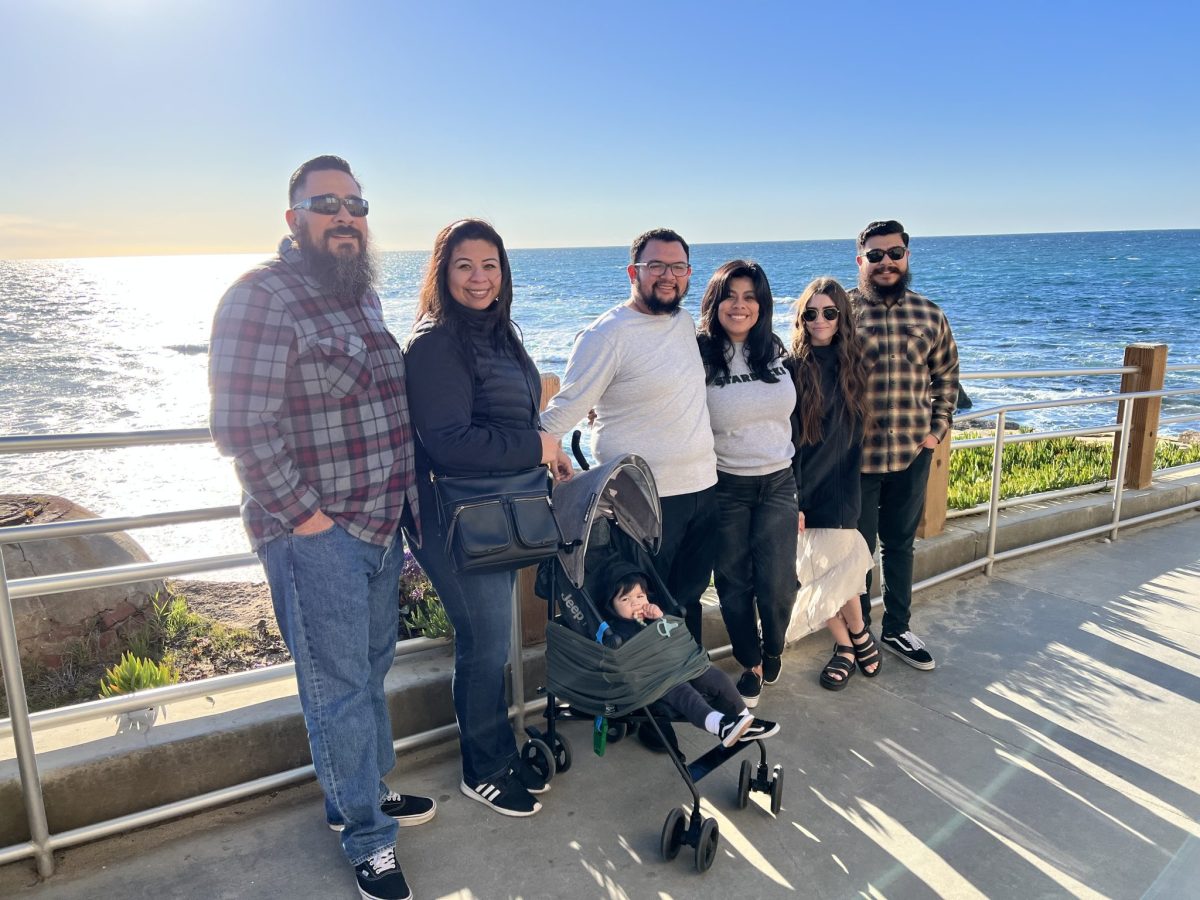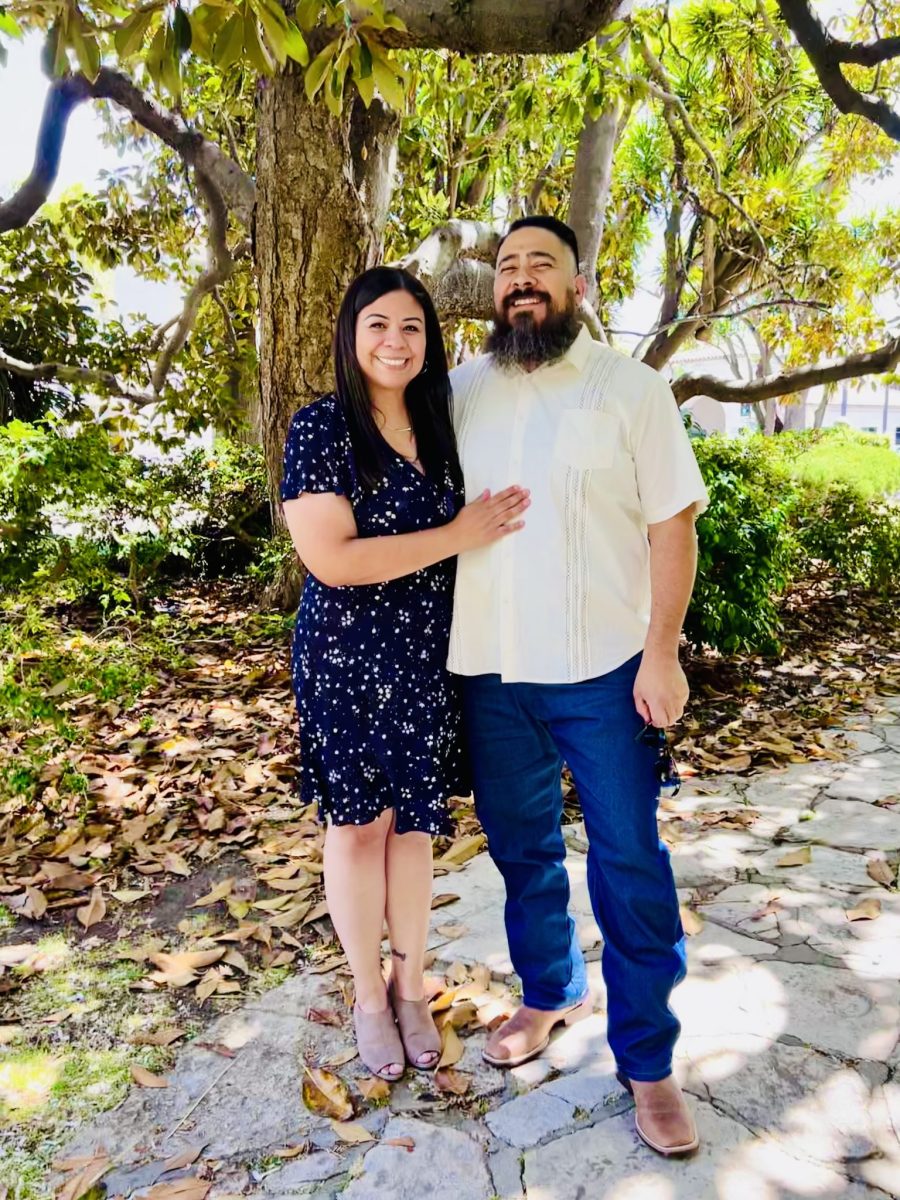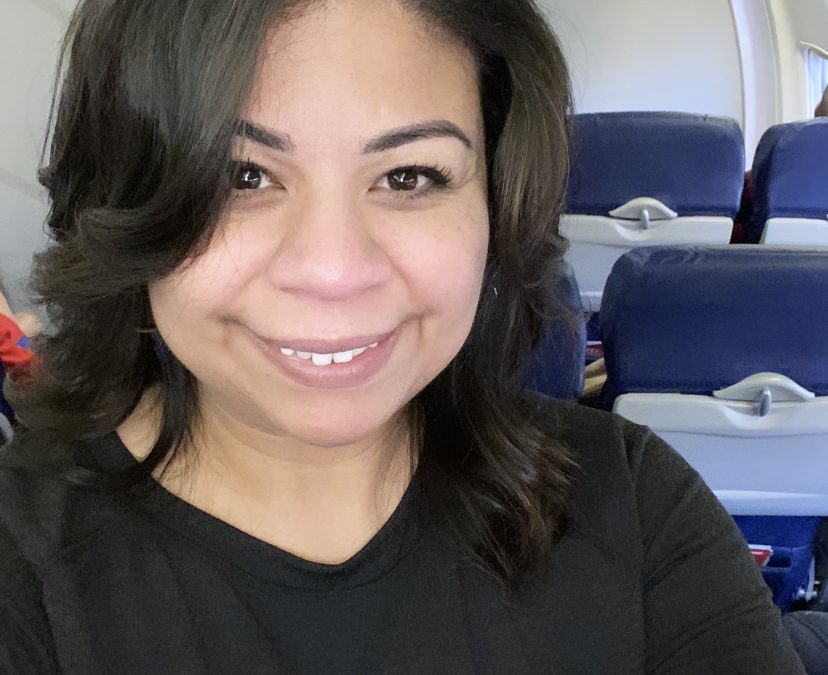During this fall quarter, I had the pleasure of meeting and getting to know Professor Delia Orosco, a new Honors faculty member. She is a community health manager at Inland Empire Health Plan (IEHP) and is the professor of the course UHNR 354: Honors Community Involvement.
Orosco’s passion for teaching was inspired by her experience with a teacher who encouraged her to keep working hard in school despite the challenges and obstacles that occur in life. This passion led Orosco to begin her studies with the vision of becoming a teacher. Professor Orosco has a bachelor’s degree in liberal arts with an emphasis in English from California Baptist University. She also has a master’s degree in management and leadership from Western Governors University. Throughout her undergraduate experience, she completed all the necessary requirements to be credentialed as a teacher and work soon after graduation. Professor Orosco achieved her dream career as she began teaching in 2006. Her main goal was to help guide and mentor students in education, and reaffirm their belief in themselves that they can excel in their studies.

Professor Orosco works at Inland Empire Health Plan where she focuses on educating communities about health care. For example, she educates parents on the importance of taking their kids to health clinics to receive physical examinations as it can play a significant role in the health and wellbeing of their children. Additionally, she helps individuals and communities identify the social perspectives and economic factors that influence their health and how specific changes to areas in their lives can improve situations that considerably affect their health. Orosco’s work requires her to look at the big picture of an issue affecting a community and help that community find possible solutions. She loves her job as she finds it meaningful and is able to live out her faith through her contributions.
The social and economic factors that affect people’s health are known as the social determinants of health. Professor Orosco has lectured on the impact of social determinants of health in communities in the course UHNR 354: Honors Community Involvement. Her class is focused on designing and incorporating upstream interventions that can improve the outcomes of programs directed by community serving organizations. One of the main points she makes in class is that making changes in communities should resemble a partnership. Professor Orosco says that when a community serving organization is reaching out to their community, the community needs to know that the organization will be there with them throughout the entire process. Orosco communicates this with those she works with by saying to them, “We will walk alongside you and we are going to take care of the things needed to achieve care, pay bills, get a job, and health insurance.” Community-serving organizations should communicate in their words and actions that they are there to collaborate with community members in making beneficial changes and Orosco equips her students with skills to design projects that can help do just that.

For their Honors Community Involvement project, students will focus on what is affecting the social determinants of health in a community and what changes can attend to the community’s needs. When assessing the social determinants of health in a community, Orosco notes that healthcare overlaps with many things such as education and the availability of extracurricular activities. Students are encouraged to design projects that address needs in different areas that are not directly related to healthcare. This academic year, her students are working with various groups to propose projects that aim to reduce mental health stigma, improve women’s health and healthcare in general, provide food and clothing, increase access to resources such as emergency kits, give free music lessons, and help animal shelters. Orosco says she loves to see that her students are driven.
Orosco enjoys a variety of hobbies, such as knitting and sewing. She loves to read as well, for she believes it expands one’s vocabulary and helps one to learn more about different perspectives. She also enjoys domestic traveling and visiting new places. Finally, she likes to bake because it creates opportunities for fellowship with her loved ones.
Furthermore, Professor Orosco advises current Honors students to avoid expecting perfection, for in our desire to achieve perfection, we can miss the journey. She says that our society makes it seem that we need to be perfect, look perfect, and have perfect lives. Social media, for instance, allows us to use filters to make a picture or post look ideal, but in reality, nobody can be perfect. “Don’t have this idea that if it isn’t perfect, it is a complete failure,” Orosco explains. She hopes students know that what truly matters is that they are doing the best they can in the moment and that they enjoy the process.
— Natalia Ruiz (Health Science: Clinical Health Studies, Class of 2024)

